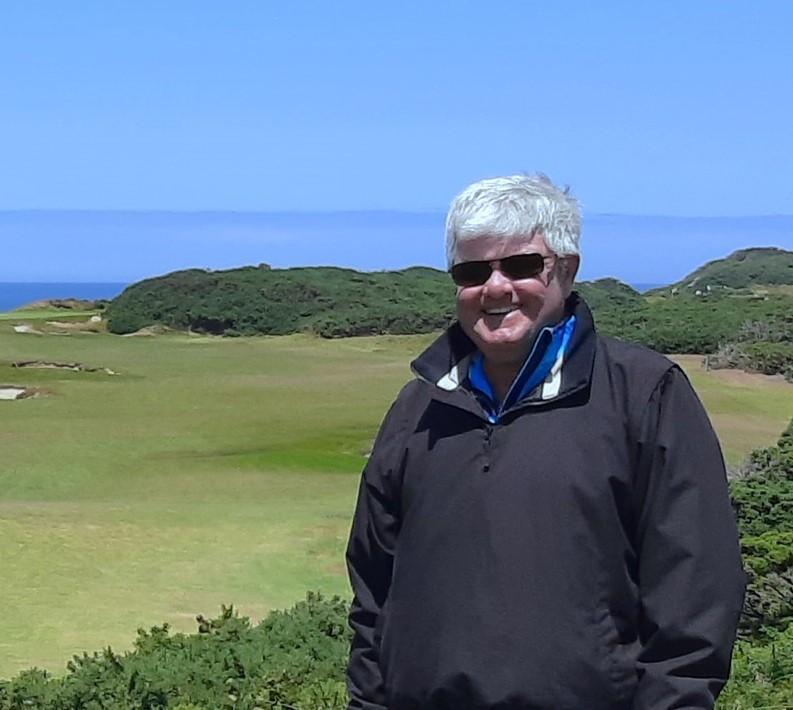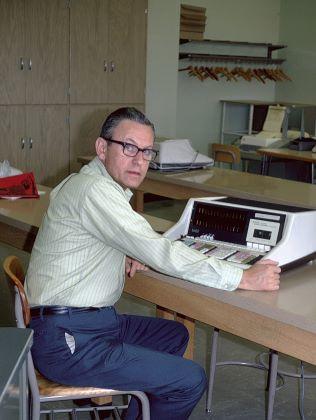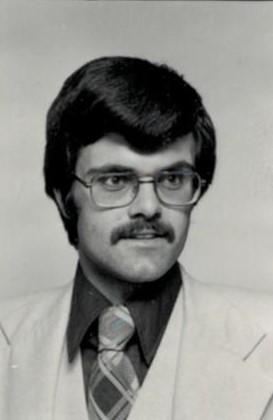Robert “Bob” Meyers, has had a celebrated career that was launched by experience gained in his teens and beyond by working at what would become UMD’s Bureau of Business and Economic Research (BBER). That experience provided him with skills and abilities that were uncommon for a young professional at the time.
Bob’s career included serving as the CEO and majority owner of FMH, Inc. (electrical engineering and panel design firm), CEO and owner of FPD Power Development (electrical construction company), and CEO of Verispace (public data center). He also served as CEO of Transport America, Inc., a publicly traded logistics and transportation company, and founded MicroMation Inc. (software program development firm).
Working for his dad, Cecil, at age 15, was Bob’s career springboard. Cecil, founder of the BBER, was working at UMD in economics and statistics, starting in 1948. Cecil acquired state funding to purchase computers and publish the Duluth Business Index (DBI). As Bob puts it, their house was “the only house with 150 kinds of graph paper.”
Cecil was a great grant writer, which led to the previously mentioned computer purchases. Once in house, the computers’ operational manuals were handed to Bob. Bob learned how to program these computers (many of which were the size of entire tables at that time) to run statistical calculations used in compiling the DBI. Bob remembers programming a university computer to “run survey cards that held the data for the DBI; the cards would go into a scanner and computers would calculate the statistics.”
Over the years, Bob was able to work on a variety of BBER projects. Several stand out to him, but the best is a tourism study of the North Shore and Grand Rapids areas. For an entire summer, he stayed in resorts to evaluate the amenities, boat rentals, and business aspects of both of these tourist destinations. Working closely with county administrations, Bob also evaluated property tax records of the associated counties to extract data on the number of second homes, cabins, resorts, and the total property tax impacts for the studied counties. Counties already had this data, but Bob was able to sort through it and actually use it. Through this research, he compiled “recommendations for how to promote tourism facilities and the evaluations of their amenities.” Other notable projects for Bob include an economic impact study for the Miller Hill Mall and Highway 53, which at that time only had the T4 (now Target) building.
Bob noted the importance of the skills he acquired during his time at the BBER as a foundation for his remarkable career success. He noted that he “learned how to do research, which is valuable in any industry.” Questions such as “will this market have new opportunities?” and “where does this business fit into the market?” turned out to be crucial for him when he worked with different companies.
The computer skills that he acquired also proved to be critical in his career. The method for operating the early computers required that the operator truly understand the language that the machines used, which Bob did. These skills allowed him to write an entire inventory management system for a company in the 1990s, which they ended up replacing with a different system. However, in doing so, “they spent millions, and ended up calling me and asking me to help bail them out again,” said Bob. “I was able to get them through Y2K.”
He also developed writing and presentation skills during his time with the BBER. He noted that “you have to be able to disseminate in a reasonable fashion what you have done,” which is another valuable skill for students to learn.
Cecil Meyers passed in 1979, but his legacy lives on. Though the original computing lab that the father-son duo worked in for so many years and was named in Cecil’s honor is gone, the Bureau that he founded continues providing important research to the region and beyond. The DBI eventually was discontinued.
Bob thought that Cecil was always tapped into the future. One of Cecil’s great qualities being able “know the future of the industry, [just like he] knew that computers were the future,” said Bob.
The BBER today continues the work that Cecil and Bob did—looking to the future, expanding research projects to broaden the experiences of student workers, and helping the Duluth community and beyond.


